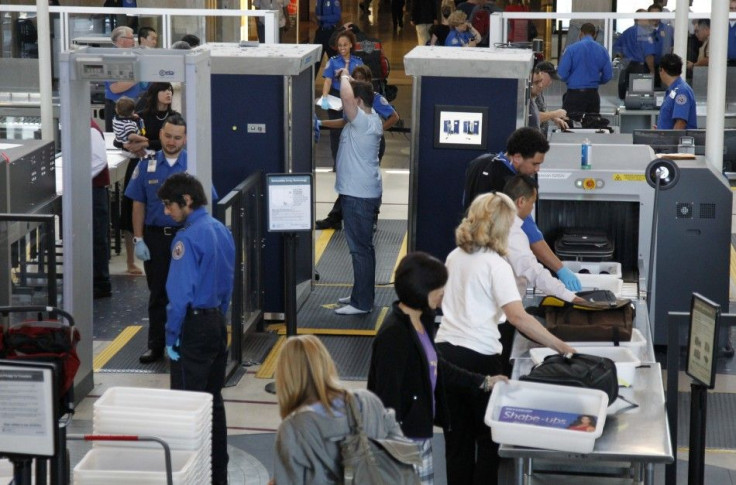How 9/11 Changed the Way we Travel

While so much has changed in America since the Sept. 11, 2001 terrorist attacks, arguably the greatest alteration to our way of life came in the way we travel.
Nearly 3,000 lives were lost when four commercial airliners were fashioned as missiles by terrorists against the U.S., something mostly unthinkable at the time.
A decade later, increased security at airports is commonplace, a certain lack of privacy is demanded, and we have given up many of our freedoms for the sake of that very word.
The U.S. Transportation Security Administration (TSA) didn't even exist before 9/11. The now-ubiquitous organization was actually created in the wake of the terrorist attacks of Sept. 11, 2001, to strengthen the security of the nation's transportation systems by the Aviation and Transportation Security Act, passed by the 107th Congress in November of 2001.
Before 9/11, airport security was contracted out to private companies.
The TSA was created to do three things: take responsibility for all modes of transportation; recruit, assess, hire, train and deploy security officers for 450 commercial airports from Guam to Alaska within 12 months; and provide 100 percent screening of all checked luggage for explosives by Dec. 31, 2002.
Now, 50,000 TSA officers screen nearly two million air travelers each day.
Air Travel: A Complete Routine Make-Over
Air travel has seen a complete makeover in the past 10 years -- for better or worse.
A lot of what's changed goes on behind the scenes. The TSA has multiple layers of security operation every day, including Federal Marshals on aircraft, hardened cockpit doors, and even behavior detection officers.
In the past decade alone, the TSA detected 50 million prohibited items, including 5,000 firearms on passengers attempting to board planes.
Of course, all of this comes with a price.
The TSA is constantly struggling to strike the right balance between what technology is capable of, and what the public is willing to accept.
These days, we are subjected to the occasional pat down, revealing body scans, and a small-scale strip down at the security check. We remove our shoes and belts, and place small quantities of liquids in plastic bags.
While this can be aggravating, looking back, it seems rather bizarre that items like box cutters were ever allowed on planes. But they were for years before 9/11.
Before, your wife could escort you to the gate without a boarding pass. Now, that is unheard of.
Some things we don't even think much about. For instance, the TSA created large spaces, often installing mood lighting to create a calm, stress-free environment in airports. In this environment, it's easier for officers to pinpoint potential threats.
Extra Security Increased Flying Costs
A lot has changed in 10 years, and we're actually paying for the changes.
For each leg of a journey that requires you to board a plane, you now pay a $2.50 September 11th Security Fee, which goes toward financing the TSA's staff, operations and screening equipment.
Last year, airlines and passengers contributed $2 billion in taxes and fees to the TSA, and there is a proposal in front of Congress to double the September 11th Security Fee to $5 per enplanement.
Some changes were less direct, but forever changed our experience in the sky.
Because several airlines flirted with bankruptcy post-Sept. 11, airlines instituted revenue-boosting measures like fees for checked bags and fuel surcharges. They also reduced the number of flights, crammed in more seats, and cut out complimentary snacks and beverages.
The customer experience inevitably suffered. In a private economic survey released by the American Customer Satisfaction Index (ACSI) in June, airlines had the lowest rating of any industry group, just beating out the Federal Government and subscription TV providers.
The impact is certainly felt. According to a Cornell study on The Impact of Post-9/11 Airport Security Measures on the Demand for Air Travel, there has been a small, but noticeable decline in air traffic that has cost the industry an estimated $1.1 billion, according to the paper's co-author Garrick Blalock.
Clearly, no one likes to be inconvenienced, he noted.
For all of our inconveniences, the truth of the matter remains that in the decade since the 9/11 attacks, there has not been another successful act of terrorism.
Furthermore, according to statistics, there are fewer cancellations and mishandled bags than there were ten years ago.
Most Americans appear willing to accept the additional hassle, forgo the complimentary snacks, and arrive hours before their flight to sit alone at the gate. It's the price we have learned to pay to feel safe in our post-9/11 world.
© Copyright IBTimes 2024. All rights reserved.






















